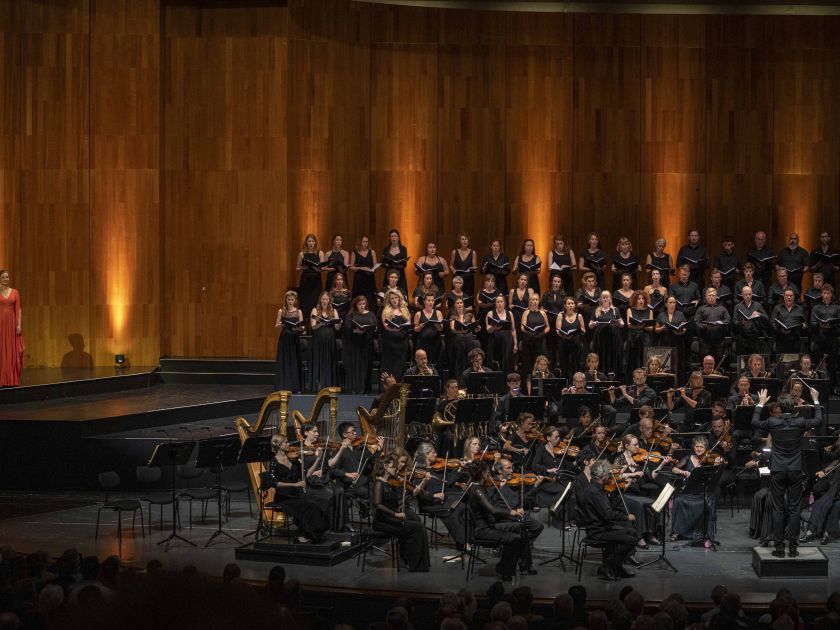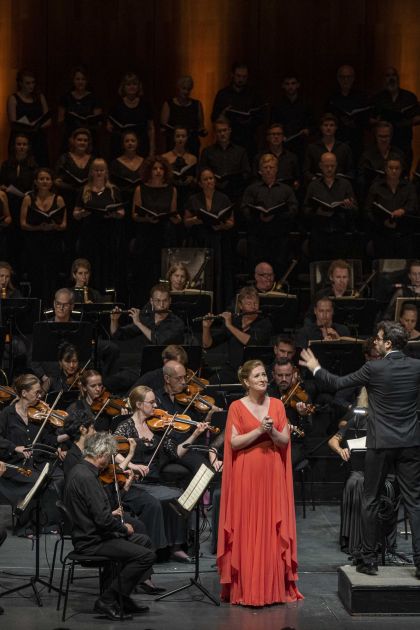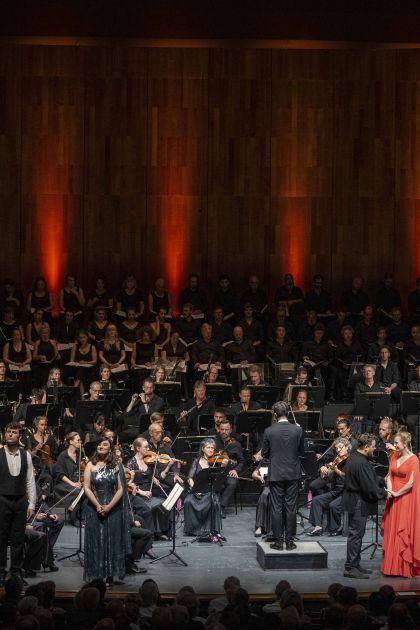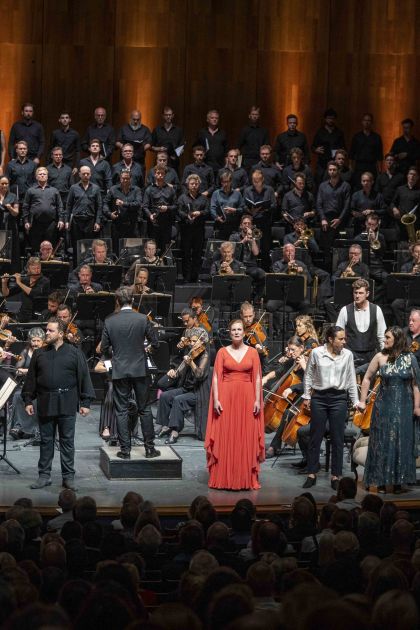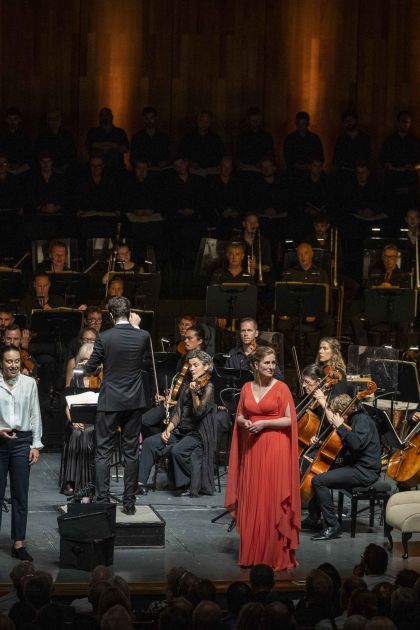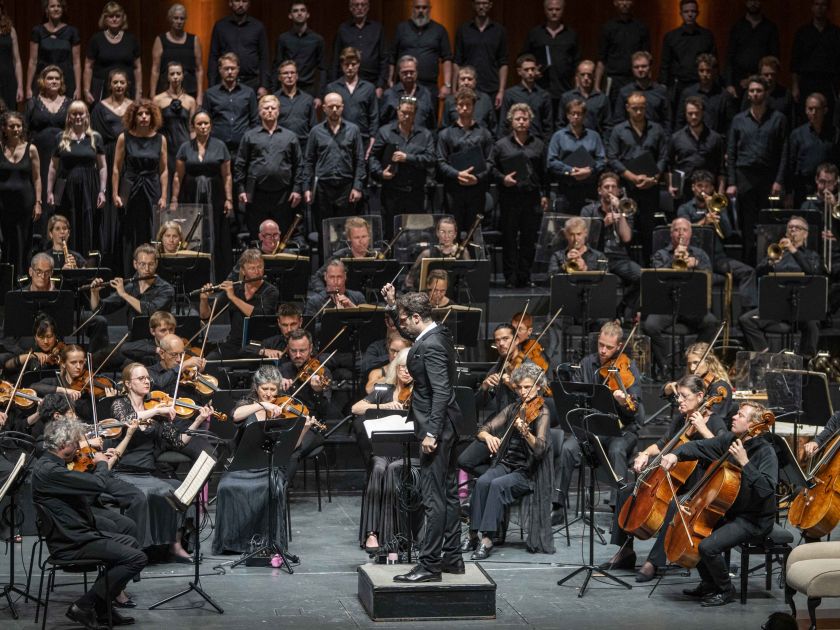The Monteverdi Choir and Orchestras have informed all the parties involved in the tour – the Salzburg Festival, Château de Versailles Spectacles, Musikfest Berlin and the BBC Proms – that John Eliot Gardiner has withdrawn from conducting the remaining concert performances of the opera.
Official statement from the Monteverdi Choir and Orchestras:
Our values of respect and inclusivity are fundamental to us as company and we take seriously the welfare of all our performers and employees. Following a consultation with his doctor, John Eliot Gardiner has decided not to return to conduct the remaining performances of the Monteverdi Choir and Orchestras’ (MCO) tour of Berlioz’s Les Troyens. The upcoming concerts at Salzburg, Versailles, Berlin and the BBC Proms will be conducted by Dinis Sousa, MCO’s Associate Conductor, who has worked closely with John Eliot and the musicians throughout the rehearsal process.
John Eliot Gardiner has made the following personal statement: I deeply regret the incident which occurred at the Festival Berlioz at La Côte-Saint-André on Tuesday evening and apologize unreservedly for losing my temper immediately after the performance. I make no excuses for my behaviour and have apologized personally to Will Thomas, for whom I have the greatest respect. I do so again, and to the other artists, for the distress that this has caused. I realize how much this has affected all the participants involved in this major project, that has been so dear to my heart.

